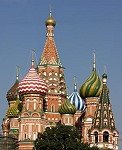Interview with Director of the Hermitage Mikhail Piotrovsky
When the matter concerns scientific institutions, one recalls first of all academic and branch institutions and higher education institutes (although lately there have been restrictions in the line of a proper scientific work), however science also lives in archives, libraries, museums, as well as, in informal scientists’ communities. The registration of the world experience would add private corporations to that list. “The advanced science” opens the cycle of materials about existence of science in such places and forms, about which the government prefers to forget starting from the tasks of “regular” administration, and citizens may not know at all.
It was fortunate that the publication of our first conversation from this cycle contemporized with International Museum’s Day, because our interviewee is Professor Mikhail Piotrovsky, Director of the State Hermitage, Doctor of historical sciences. Mikhail Borisovich Piotrovsky is a corresponding member of the Russian Academy of Sciences, full member of the Russian Academy of Art, deputy chairman of the President’s Council for Art and Culture. He is also chairman of the Union of Museums in Russia, professor of St. Petersburg State University, chairman of the tutorial board of the European University in St. Petersburg, president of Worldwide Club of St. Petersburgers. His scientific interests are: Arab and Islam culture and art, archeology of the Middle East and Yemen, ancient Arabic epigraphy, history of the World and Russian museum management studies and art collections. Interviewed by Natalia Demina.
Coming to our meeting, I saw how brides and bridegrooms took pictures in a sunny day at the Hermitage’s doors and put bouquets at the Atlantes’ feet…
That is such a Russian and St. Petersburg tradition when newly wedded on the day of their wedding drive around the memorable places. It’s very interesting to watch what historical monuments they visit. Today many young people get married in church, but all the same they come to “Bronze Horseman” – Peter the Great monument on Decembers’ square, The Church of Our Saviour on Blood, Point of Basil’s Isle, to those place which are pride of Russia, the part of our historic memory and this is very important. The Hermitage is an integral part of St. Petersburg’s atmosphere, that’s why young people come to the Hermitage’s atlantes. May be they don’t know who atlantes are and visit seldom the museum, but I saw more than once how the newly wedded come to the Hermitage the day of their wedding.
The newly married couples walk about the Hermitage, take pictures. It gives them pleasure as it’s one of the functions of the museum. Such a tradition is a part of the interaction of the Hermitage with society.
Quite often one can hear such point of view that science can be only in higher establishments and academic institutions? Is there science in museums in your opinion?
First of all there is science in museums and it must be so. It is occasionally said, that museum’s director must not necessarily be a scientist, that museums are not scientific institutions, but either an entertainment center or a place of rendering of services. In my opinion, the idea, that science must be only in scientific-educational establishments is not only wrong, but very harmful aimed at removing science from Russia. And the question is not about science reform. “Reform” in our country is such a fashionable word, as it was before “the bright future”. The matter is that such transformations will result in that museums will suffer or even that they will completely perish as serious culture establishments.
The issue that you’ve touched is very serious and completely true. This is a very fundamental and important question, which is at the front of the struggle for preservation of our culture. Culture in the past years has been the only convertible product. Certainly, besides oil and gas resources and arms.
Recently all Russian museums have passed through very strange procedure of changing their charters, as the result the clause scientific activity has been removed from the charters. We had to “struggle with teeth” asserting our right for scientific activity, and we have managed to retain this line of activity.
More...
Subscribe to:
Post Comments (Atom)
Blog Directory
 Marketing Blog Directory | Add Blog
Marketing Blog Directory | Add Blog List your blog on the Internet's biggest and best Marketing Blog. The Marketing Blog is the premier source for the finding and posting marketing related blogs. Join for FREE!





No comments:
Post a Comment